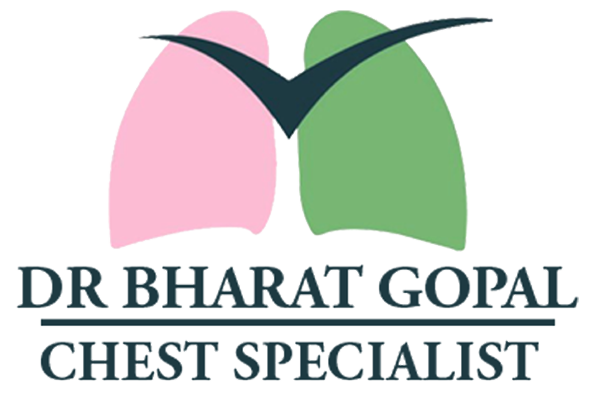Air Pollution –all we need to know
Dr Bharat Gopal
- Director & Head, Dept of Pulmonology, Critical Care & Sleep Medicine
- Delhi Heart & Lung Institute, Panchkuian Road, New Delhi
Despite decades of progress, the air quality in the city has started to continuously decline over the past few years, according to data provided by the Environmental Protection Agency. Air pollution is continuously damaging the whole ecological system and affecting the lives of plants and animals as well. It has reached a stage where its affecting the whole atmosphere by allowing more harmful radiations from the sun to the earth. Again polluted air acts as a better insulator which prevents heat to get escaped back into space. More than 90% of the children breathe toxic air as per WHO. This has almost reached catastrophic levels now living in Delhi NCR is like playing a game of Khatron ke Khiladi every minute!
For fast information, direct chat with us on WhatsApp
What is air pollution?
Air pollution is a mix of particles and gases that can reach harmful concentrations both outside and indoors. Soot, smoke, mold, pollen, methane, and carbon dioxide are a just few examples of common pollutants. While particles with a diameter of 10 microns or less, (≤ PM10) can penetrate and lodge deep inside the lungs, the even more health-damaging particles are those with a diameter of 2.5 microns or less, (≤ PM2.5). These particles are so small that 60 of them make up the width of a human hair. PM2.5 can penetrate the lung barrier and enter the blood system. They can increase the risk of heart and respiratory diseases, as well as lung cancer. Remember the level of PM 2.5 should be < 10 – we reach 700 on bad days !!
What health effects are linked to air pollution?
Over the past 30 years, researchers have unearthed a wide array of health effects which are
believed to be associated with air pollution exposure.
Even healthy people can experience health impacts from polluted air including respiratory
irritation or breathing difficulties during exercise or outdoor activities. Your actual risk of
adverse effects depends on your current health status, the pollutant type and concentration,
and the length of your exposure to the polluted air.
SHORT TERM EFFECTS:
- Aggravated cardiovascular and respiratory illness
- Added stress to the heart and lungs, which must work harder to supply the body with
oxygen - Damaged cells in the respiratory system
LONG TERM EFFECTS :
- Accelerated aging of the lungs
- Loss of lung capacity and decreased lung function
- Development of diseases such as asthma, bronchitis, emphysema, and possibly cancer
- Shortened life span
Who are at risk?
Though everyone suffers the persons who are at higher risk are-
- Individuals with heart diseases
- Individuals with lung diseases such as asthma & chronic obstructive pulmonary
disease (COPD) - Pregnant women
- Outdoor workers
- Older adults and the elderly
- Children under age 14
- Athletes who exercise vigorously outdoors
How to Help Reduce Air Pollution
The less gasoline we burn, the better we’re doing to reduce air pollution and the harmful effects of climate change. We need to make good choices about transportation. When you can, walk, ride a bike, or take public transportation. For driving, choose cars that get better miles per liter of fuel- Electrical cars will soon be available. Maybe use solar power for your needs. Buying your food locally cuts down on the fossil fuels burned in trucking or flying food in from across the country. And perhaps most importantly, Support leaders who push for clean air and water and responsible steps on climate change and force them to make it an important national agenda.
What can we do
- Wearing a mask while going outside is an option but the right mask with a proper fit needs to be worn. A mask that is rated N95/N99 or is ‘NIOSH Approved’ should be used.
- It’s advisable to avoid outdoor cardio exercises as workouts increase the chances of
respiratory issues as the body needs more oxygen during the time of exercise. - Hydration is one thing we can do during these critical times, and drinking more water
would be advisable. - Eat Healthy – have fresh fruits /vegetables with antioxidants.
- An important tip for patients is to take their medicines regularly & keep their
emergency medical kit ready with required medicines, inhalers, and nebulizers - Avoid polluted areas if possible
- Air purifiers can be used in the room though there is not enough medical data to
support their use.
Remember Air pollution is hard to escape, no matter how rich an area you live in. It is all
around us. Microscopic pollutants in the air can slip past our body’s defenses, penetrating
deep into our respiratory and circulatory system, and damaging our lungs, heart, and brain.
Remember that the Masks & Air purifiers can be reassuring but are not the solution to the
problem. However, we have no other option but to be optimistic –hope a wiser sense prevails and we wake up now –at least for our future generations. Print / Social media are very important, as a growing number of people have access to it and data and discussions on air pollution. It’s important we all join hands in this fight against this self-created disease of society.
For more information, visit our website at https://delhichestspecialist.com/and best lung treatment.



